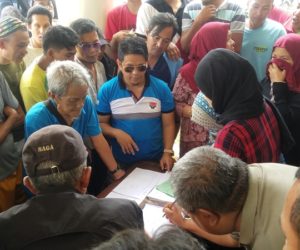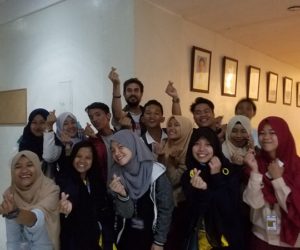While many people think of the middle east when they hear the term ‘ISIS’, what they may not be aware of is that a high percentage of Islamic State fighters do not even live in the so called ‘Islamic State’.
They are foreign fighters that flock to the region drawn by the pull of a false pretense of jihad and are armed and trained by the commanders present in the middle east before returning to their homes to create their own version of the fight for the caliphate. Many of these foreign fighters come from Muslim countries such as Malaysia, Indonesia, southern Thailand, northern and eastern Sri Lanka, Pakistan, etc., but it is a little-known fact that the country of Philippines was a fully Muslim country once upon a time.
Before the Spanish invasion of the island nation, they were entirely Muslim, and even after the conquistadores had their run of it, the southern big island of Mindanao retained their religious identity.
Even after the Spanish unlawfully sold all of the islands including Mindanao to the United States in the late 19th century did Christianity make a legitimate appearance there in the forms of pop up churches and communities.
To this day, the Muslim presence in Mindanao and Philippines is a surprise to most visitors who are unaware, but due to their strategic position near nations such as Indonesia who are already victims of legitimate terrorist groups, and the ease of movement within the tiny island archipelago southern border of Mindanao that is privy to illegal immigration and drug smuggling, these foreign fighters could come and go without repercussions. So, when the war in Marawi began in 2017, it was only a surprise to the international community, not locals.
These new ISIS fighters had consolidated multiple regional terrorist organizations into one conglomerate with a new black flag, while recruiting young new blood that were angry over the history of mistreatment of Muslims both historically in colonial times as described, but as recently as the 1970’s under a dictator named Marcos who committed mass genocide of their people. They were insecure, fearful, and ready to fight back at the first sign of trouble. When the new President Duterte recruited Marcos’ son as his vice president running mate, the flames were fanned by ISIS who quickly resorted to social media such as Facebook, Twitter, Snapchat, and Instagram to recruit the young susceptible minds living in poverty and desperate for cash and love.
Gang mentality is ISIS’ modus operandi. Many young kids who died in the battle in Marawi two years ago received offers via social media message that they would receive the equivalent of 6 months pay to join if they promised to kill the first Christian they saw, and any thereafter. The military reported to us in interviews that they were more often than not firing at children no older than 12 or 13 years old. What would possess these kids to resort to these measures? Poverty? Desperation? It surely cannot be anger.
They are too young to understand such anger. The anger stems from the leaders who used them, while running away after the war in tunnels they dug to escape the city and the military. How do you fight an opponent you cannot see? And an opponent that is willing to do anything, and sacrifice anyone? Even little kids. How do you fight a ghost? Easy. You fight them by de-recruiting their manpower. Rather than let these young children fall prey to the extremists using them as pawns, we can change their mindsets and teach them the true meaning of love.
De-radicalization. De-jihadism. Proper jihad is an inner struggle with oneself, per Islamic doctrine. Not external war with another human. By arranging classes and courses in the internally displaced camps of the people of Marawi situated on the outskirts of the battle zone for both children and adults, we can stem the tide of animosity and anger towards their supposed enemy, and infiltrate those who wish to infiltrate them by preaching peaceful rhetoric and elimination of hatred.
These classes will range from Islamic doctrine, to religious teachings outside Islam, science, non-religious philosophy, world history, discussion of modern current events and geopolitics, and other topics that can deconstruct the narrative of orient versus occident that often marks the onset of radicalization of communities. People are not born wicked or with hate. They learn hatred, just like they learn love. So, we will teach them the other side.a













